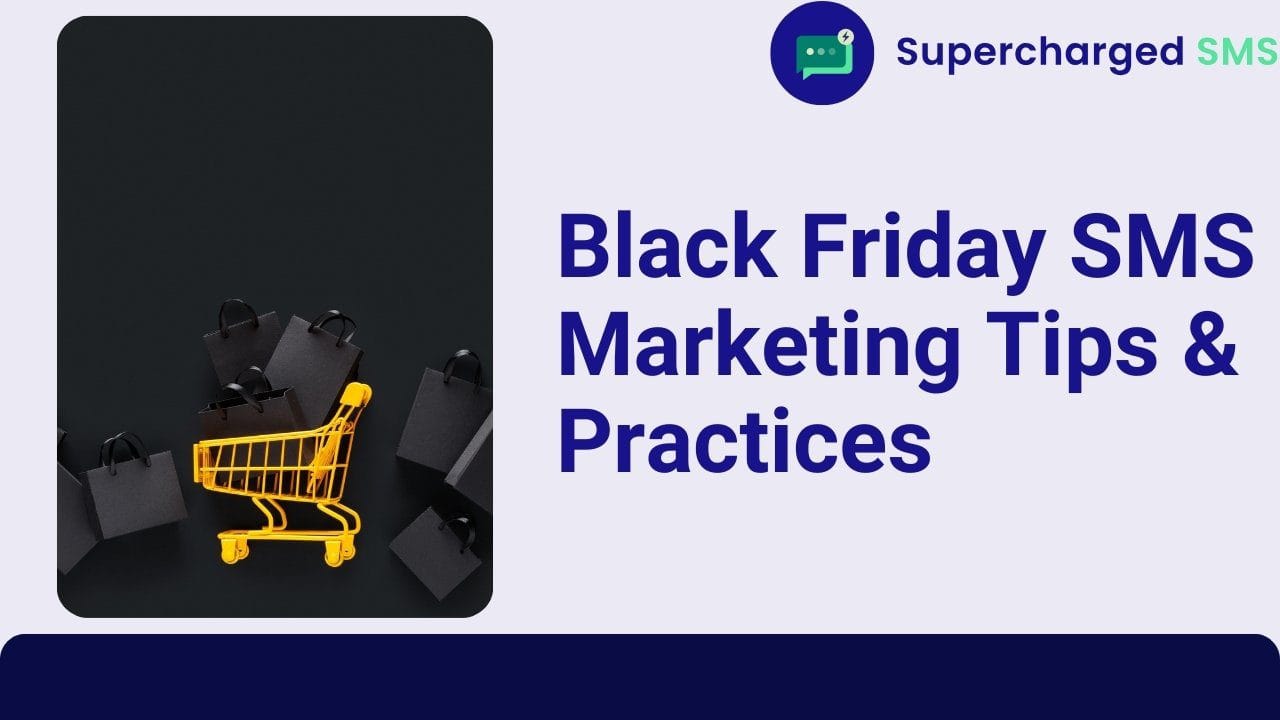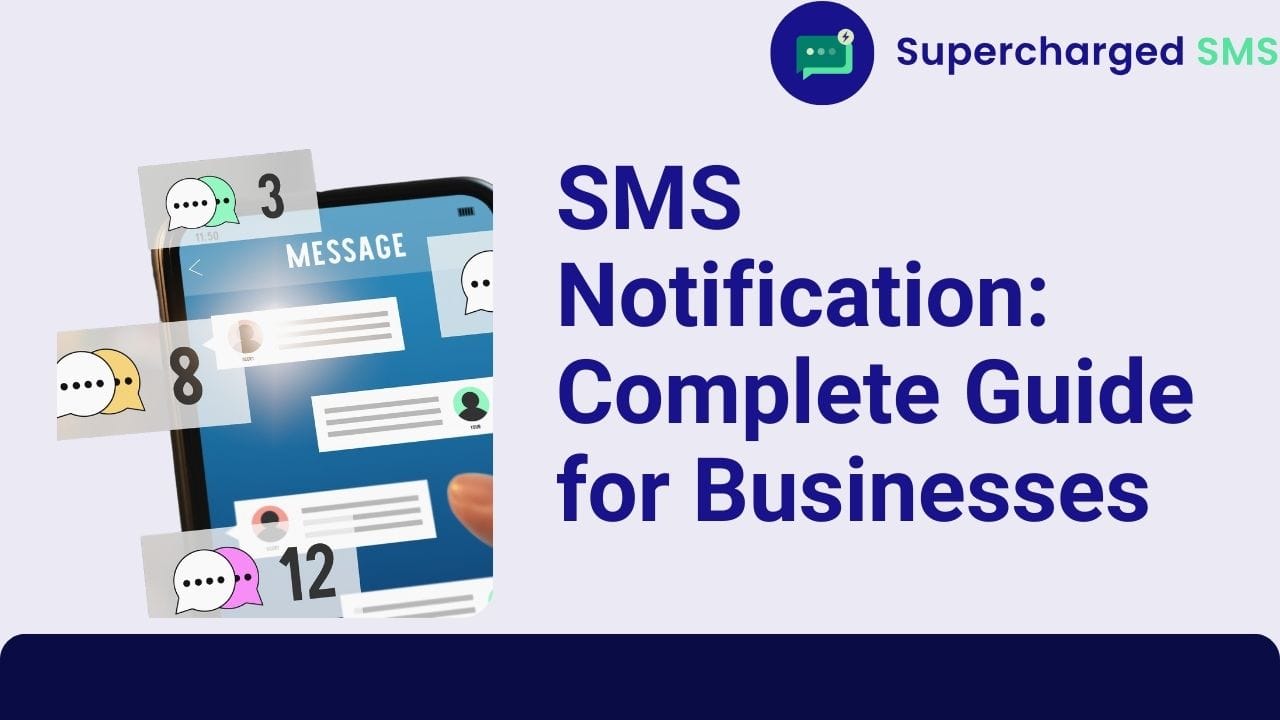Black Friday SMS Marketing 📲: Best Practices & Tips for Better Deliverability and Conversion 🛒
Are your Black Friday SMS campaigns reaching their full potential? With the intense competition and overwhelming messages during this peak season, en ...


September 16, 2024
SMS messaging has emerged as one of the most effective tools for communication due to its reliability and high engagement rates.
For businesses looking to automate and scale their messaging efforts, an SMS Gateway becomes an essential part of their infrastructure.

This guide will provide a comprehensive understanding of SMS gateways, their key components, how they work, and why they are crucial for businesses in multiple industries.
We’ll also delve into the different types of SMS gateways, their applications, and how to choose the right SMS gateway for your business needs.
An SMS Gateway is a system or service that allows businesses and developers to send and receive SMS text messages between mobile devices and applications.
Essentially, it serves as a bridge between the Internet and mobile networks, enabling seamless communication across different platforms.
Through an SMS gateway, businesses can automate their messaging processes, sending bulk SMS messages to customers for purposes like marketing, alerts, notifications, and customer support.
These gateways typically work via APIs that allow applications to interact with the gateway server and manage large volumes of messages in real time.
SMS gateways work by routing messages between an application (such as a CRM system or a website) and mobile carriers.
The general process involves four key steps:
An SMS gateway is comprised of several essential components that ensure smooth messaging operations:
There are several types of gateways, each offering unique advantages depending on business needs. The three primary types are:
A direct-to-SMS gateway connects businesses directly to mobile network carriers. It allows companies to send and receive messages with high speed and reliability because there is no intermediary service.
An SMPP gateway is a standard protocol for exchanging SMS messages between Short Message Service Centers (SMSC) and other messaging systems like an SMS gateway. It’s ideal for large enterprises looking for high-speed message routing and robust reliability.
An HTTP API gateway is the most common type of gateway used by businesses. It works by allowing companies to send and receive messages through simple HTTP requests. This type of gateway is easy to integrate with most business applications and is highly scalable.
SMS gateways can be used in a wide range of industries and for various purposes. Here are some of the most common applications:
Businesses can use gateways to send marketing messages, promotions, discounts, and offers directly to customers. Shopify SMS marketing has an open rate of 98%, making it one of the most effective ways to reach your audience.
For banks and financial institutions, gateways are crucial for sending transaction alerts, balance updates, and fraud notifications. These real-time alerts help build trust with customers and ensure timely communication.
Businesses can integrate gateways into their customer support systems to handle customer queries, send automated responses, and offer real-time assistance. This improves customer experience and boosts satisfaction.
Healthcare providers and service-based businesses can use gateways to send appointment reminders, reducing no-shows and improving operational efficiency. Automated reminders ensure that customers stay informed and engaged.
Gateways are often used for two-factor authentication (2FA) to enhance security for online services. When users log in to a system, they receive a one-time password (OTP) via SMS, ensuring that only authorized individuals can access sensitive information.
The importance of gateways for businesses cannot be overstated. Here’s why they play a critical role in modern communication strategies:
SMS messaging is one of the most reliable forms of communication, with messages typically delivered within seconds. Moreover, since almost everyone has a mobile phone, businesses can reach a vast audience quickly.
SMS messages boast impressive engagement rates, with up to 98% of messages being opened within the first three minutes of delivery. This makes SMS an incredibly effective channel for urgent communication.
Compared to other forms of communication like email or phone calls, SMS messaging is highly cost-effective, especially when using bulk messaging through an gateway. It allows businesses to reach large audiences without incurring high costs.
SMS gateways allow businesses to automate their messaging, ensuring that large volumes of messages can be sent without manual intervention. This is especially important for companies looking to scale their operations.
Modern gateways provide valuable insights into message delivery, engagement rates, and customer behavior. Businesses can use this data to optimize their campaigns, improving effectiveness and ROI.
When selecting a gateway for your business, there are several factors to consider:
Choose a gateway that guarantees high uptime and reliability. Delayed or failed messages can have a significant impact on customer experience, so ensure that the provider has a track record of reliability.
If your business operates internationally, make sure the gateway offers global reach, with support for multiple countries and regions. It’s essential that the gateway can connect to various carriers worldwide.
Ensure that the gateway offers API compatibility with your existing systems. It should be easy to integrate with your CRM, marketing tools, and other business applications.
Security is crucial, especially for businesses that handle sensitive information. Choose a gateway that adheres to industry standards for data protection, including TCPA and GDPR compliance.
Evaluate the pricing model of the gateway and ensure it aligns with your business needs. Some providers charge per message, while others offer monthly packages. Make sure the gateway can scale with your business as it grows.
While gateways offer numerous benefits, businesses may face challenges when implementing and managing them. Some of the most common challenges include:
Certain mobile carriers may impose restrictions on message content or limit the number of messages that can be sent within a specific timeframe. It’s important to be aware of these restrictions and choose a gateway provider that can navigate them effectively.
In some cases, messages may be delayed due to network congestion or technical issues with the gateway. Businesses must work with reliable gateway providers that have redundancy measures in place to minimize delays.
An SMS gateway is a powerful tool for businesses looking to enhance their communication strategies and engage with customers effectively.
By facilitating instant, reliable, and cost-effective messaging, gateways can drive engagement, increase customer satisfaction, and improve operational efficiency.
Understanding the different types of gateways, their benefits, and best practices for implementation will empower businesses to leverage this technology to its fullest potential.
Whether you’re looking to run marketing campaigns, send transactional notifications, or gather customer feedback, integrating an SMS gateway into your communication strategy can provide significant advantages in today’s competitive landscape.
By following this guide, businesses will ensure successful SMS messaging that resonates with their audience and meets their communication needs.

Are your Black Friday SMS campaigns reaching their full potential? With the intense competition and overwhelming messages during this peak season, en ...

Have you maximized your post-Black Friday and Cyber Monday engagement strategy? While BFCM is over, the opportunities to get additional sale ...

How can businesses communicate with customers in the fast-paced, digital world? SMS notifications offer a direct and powerful way to engage ...